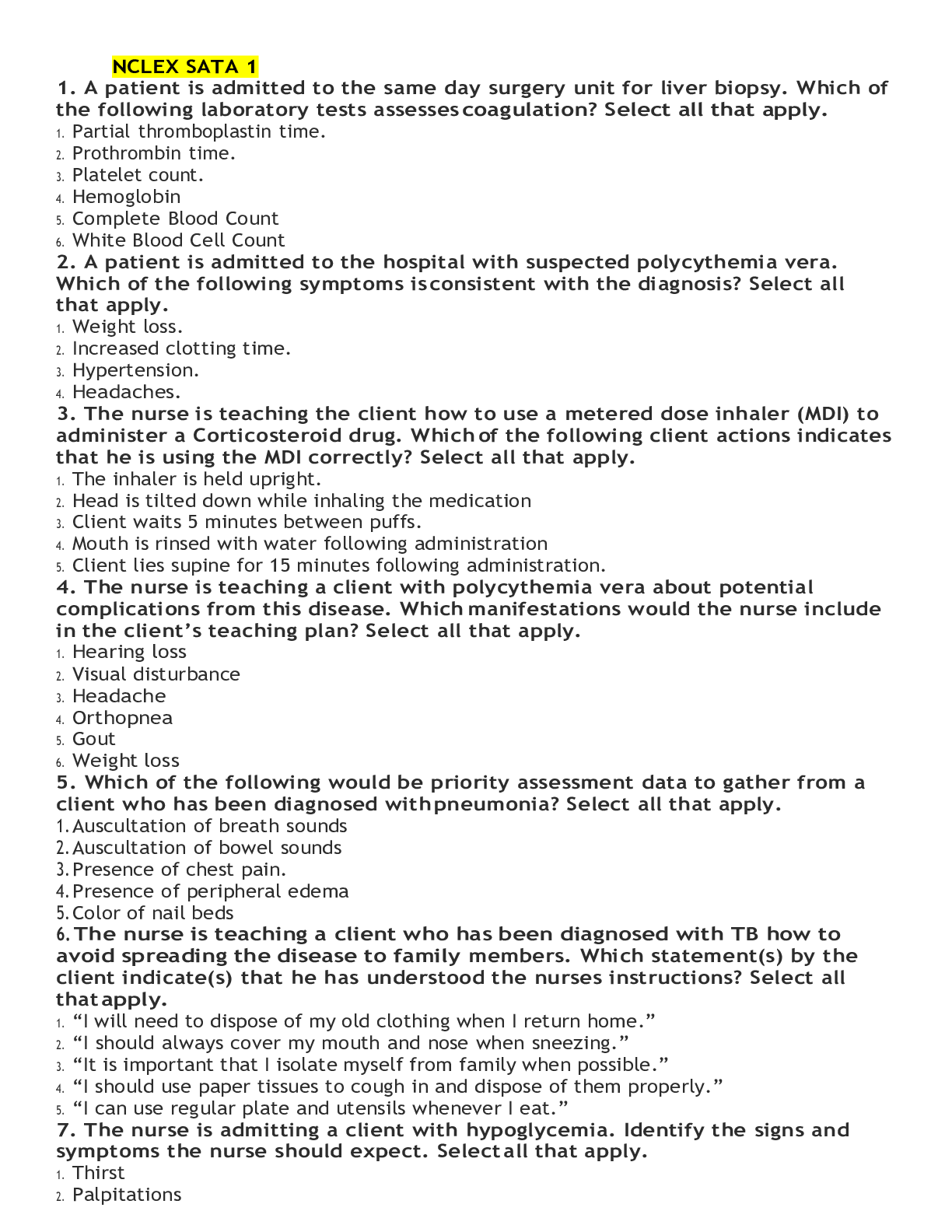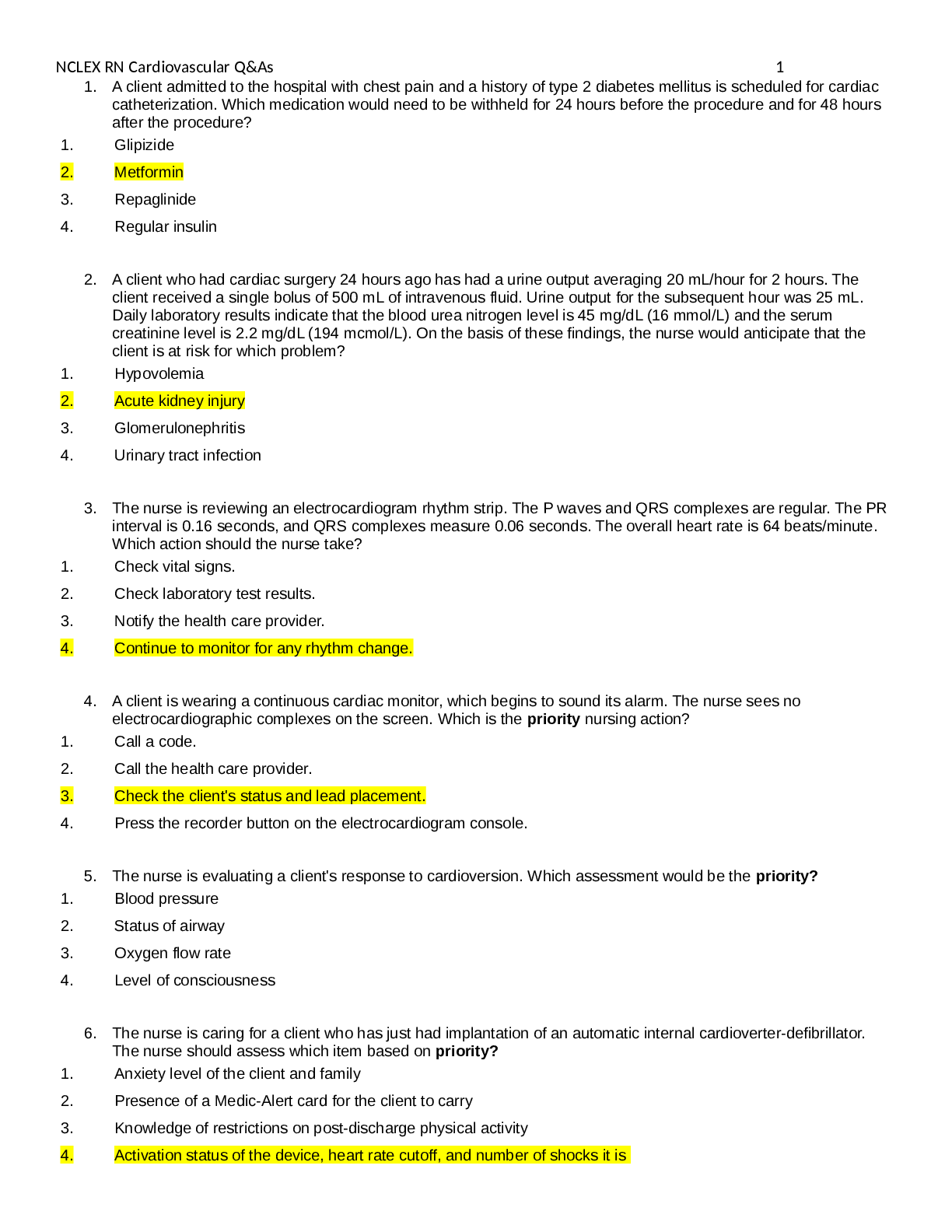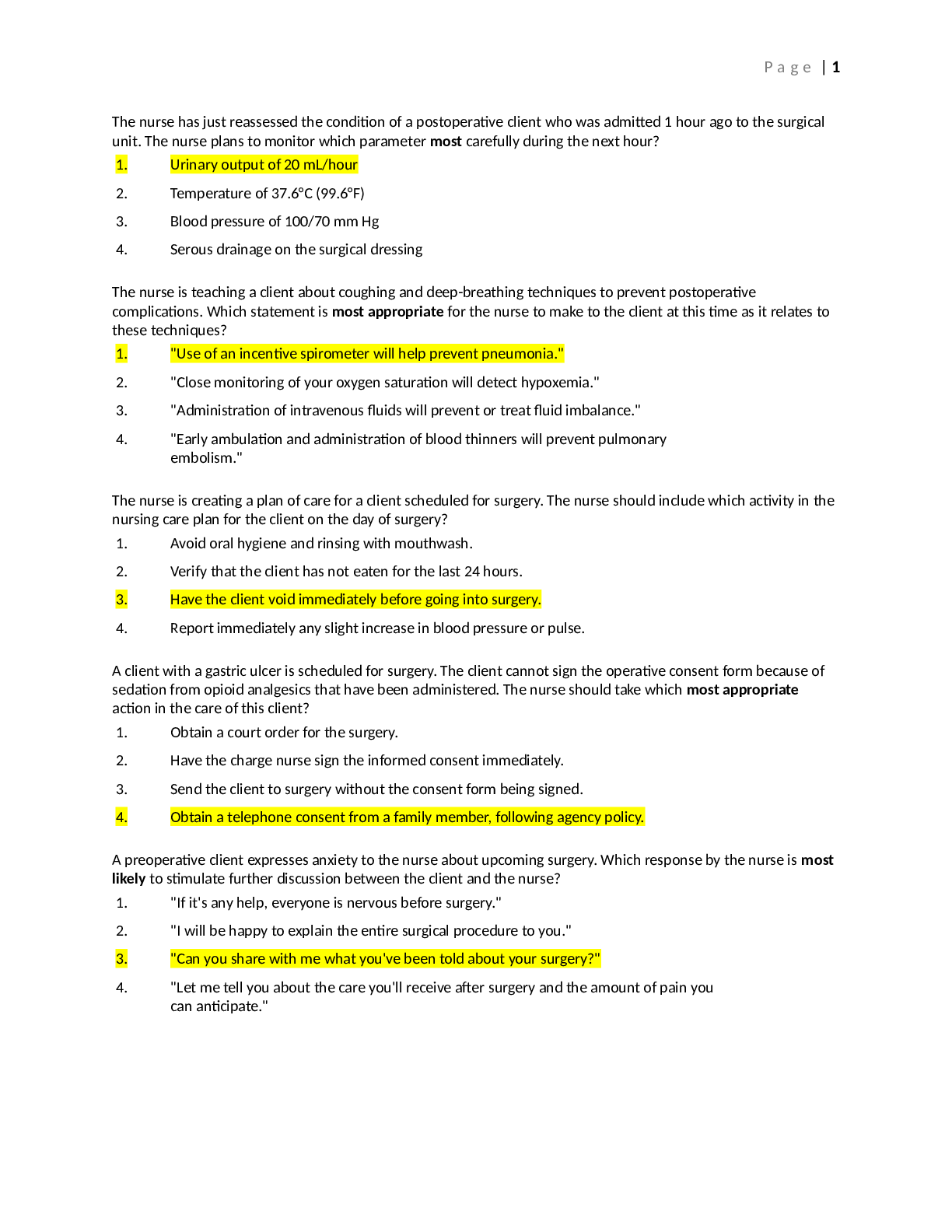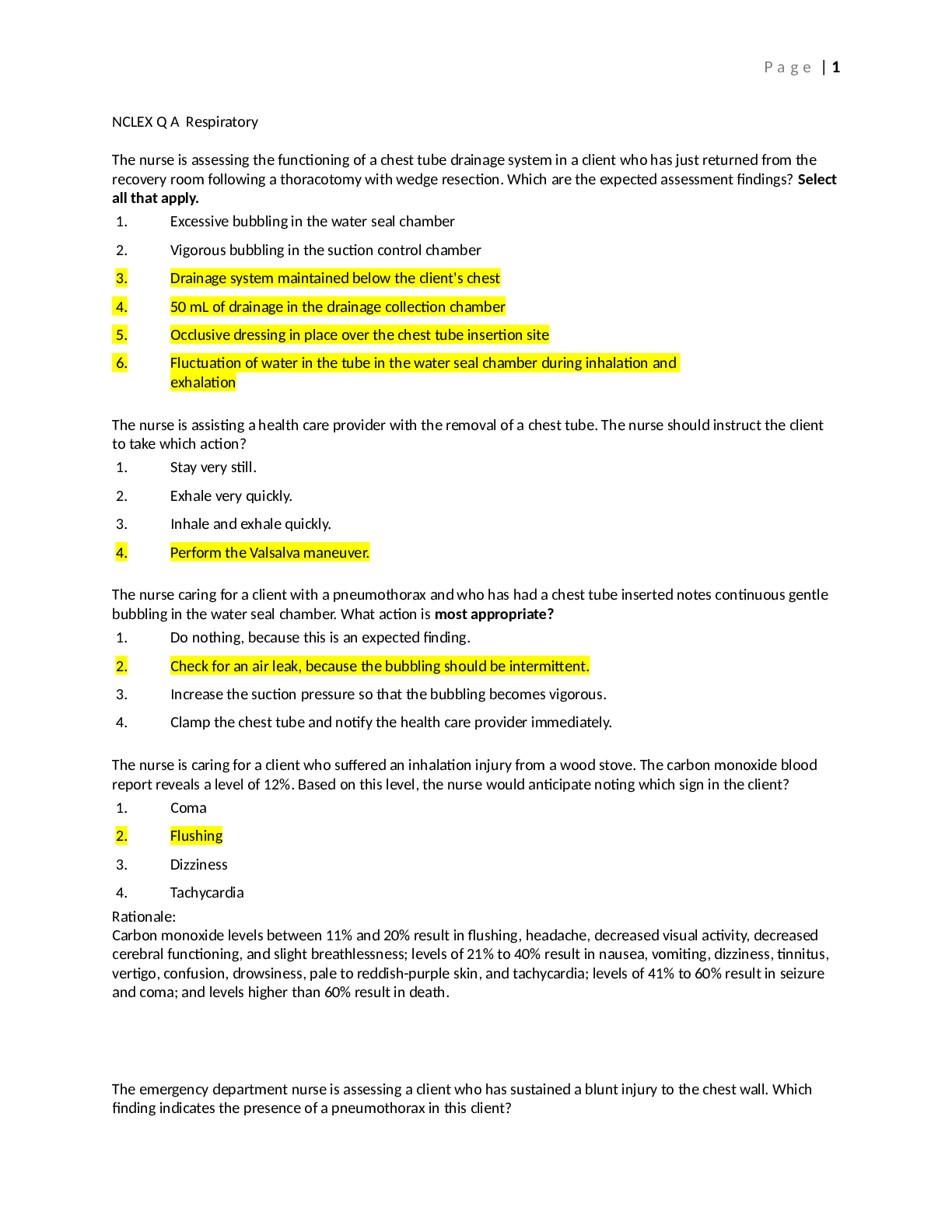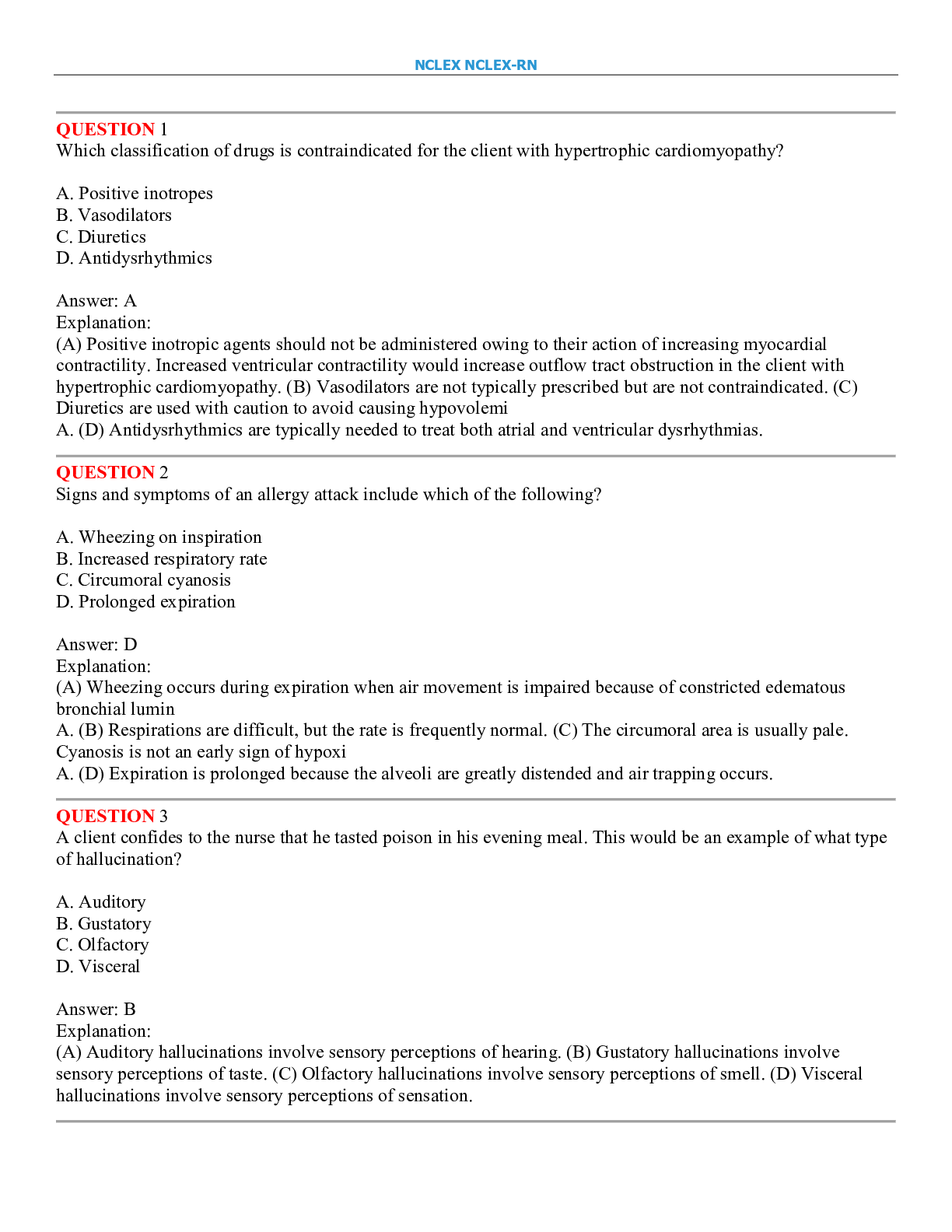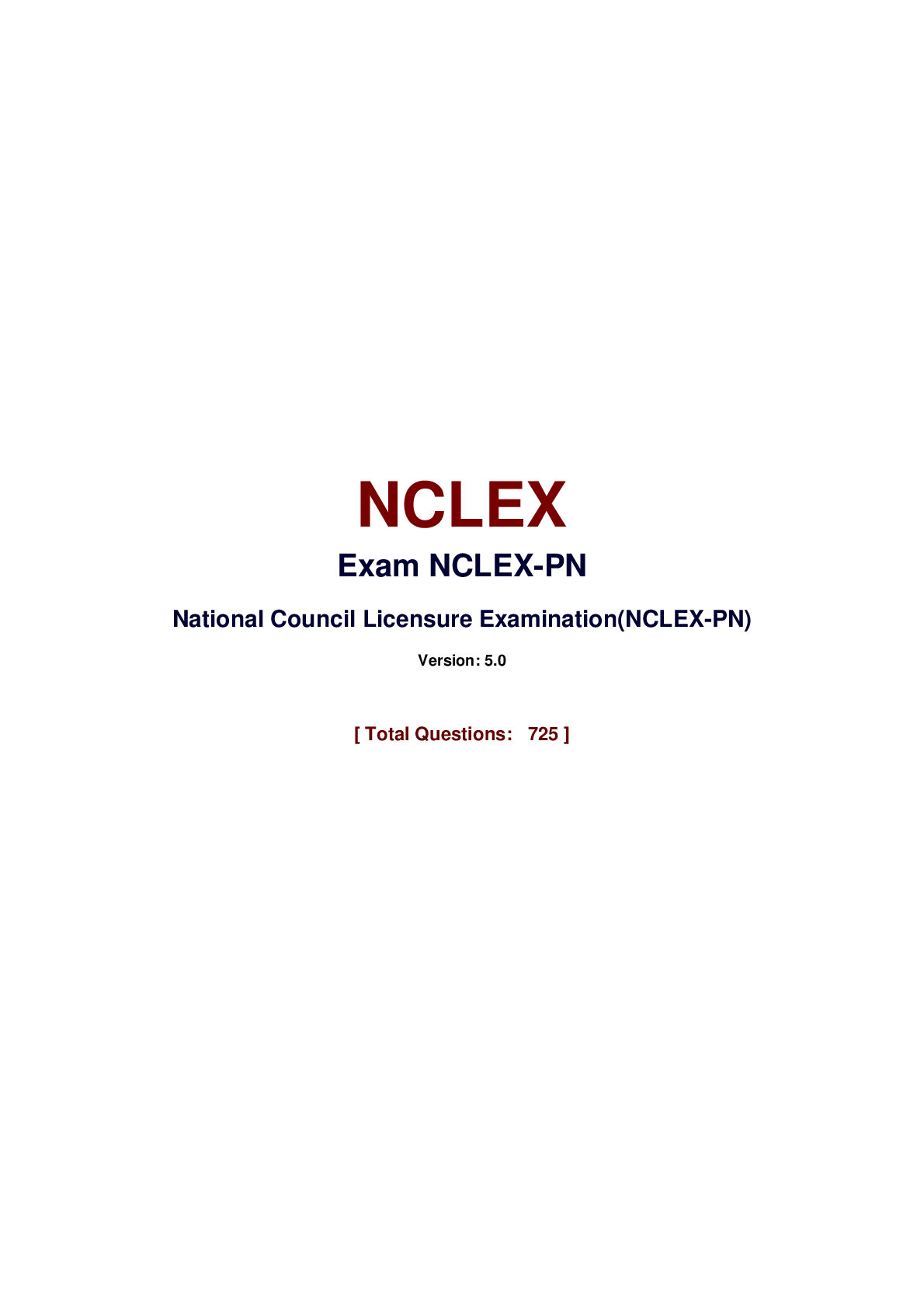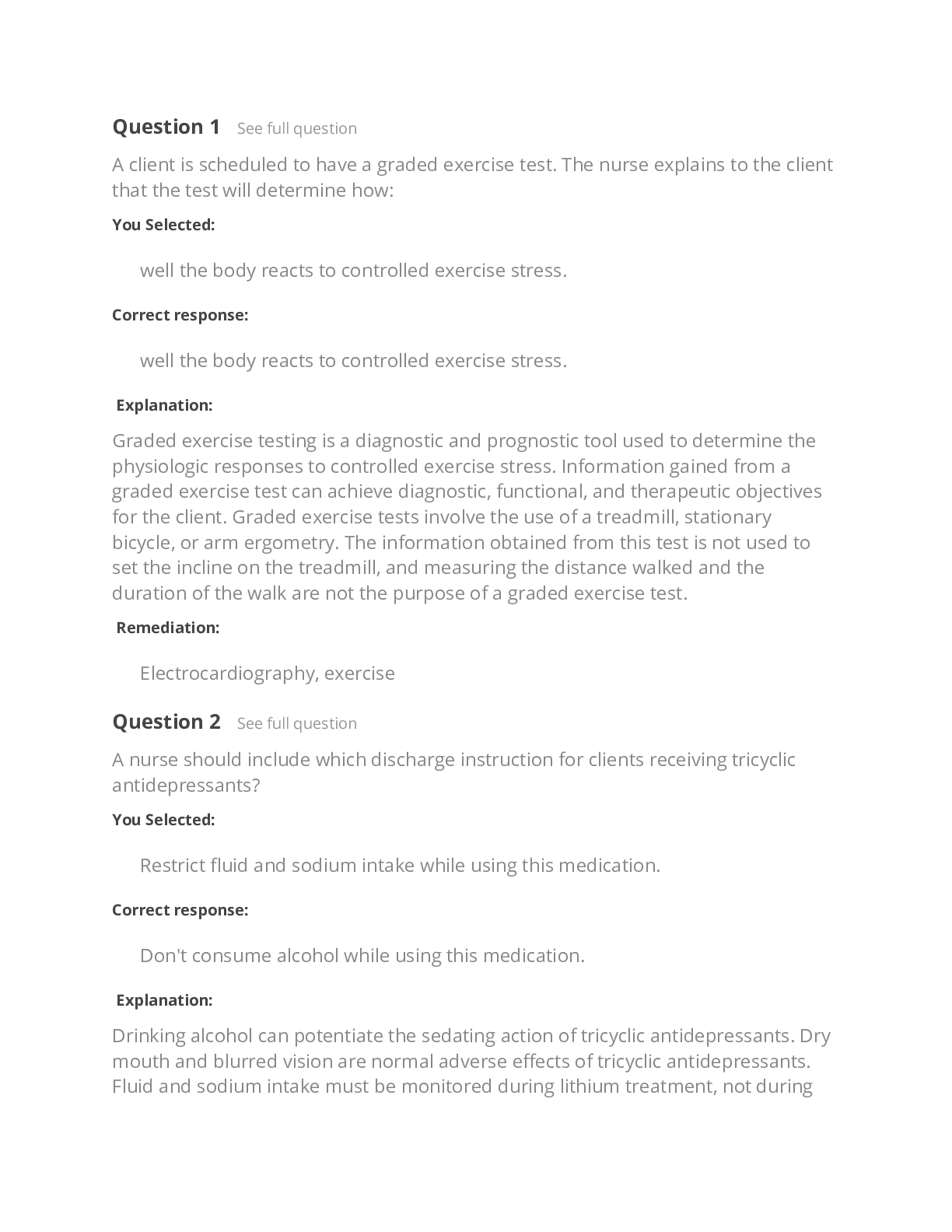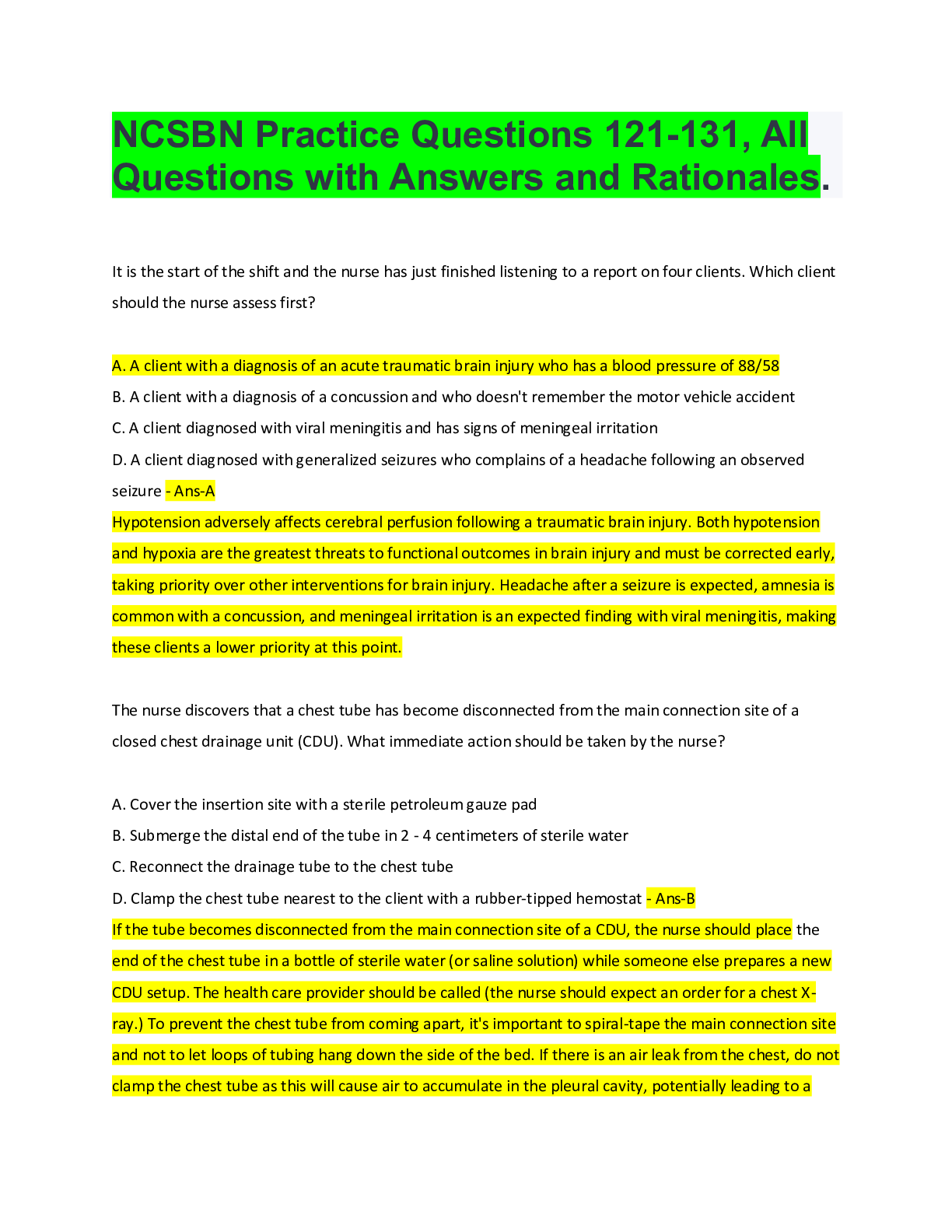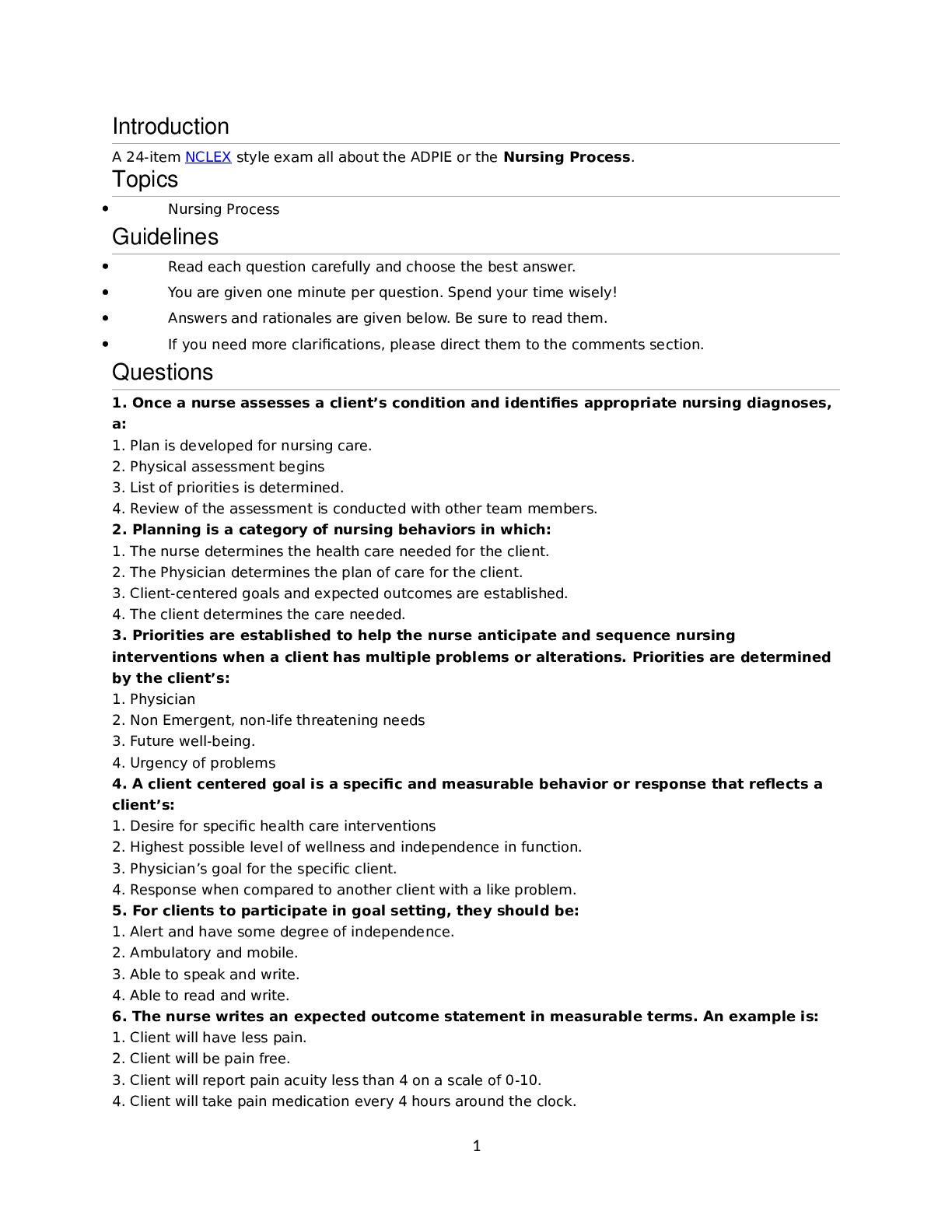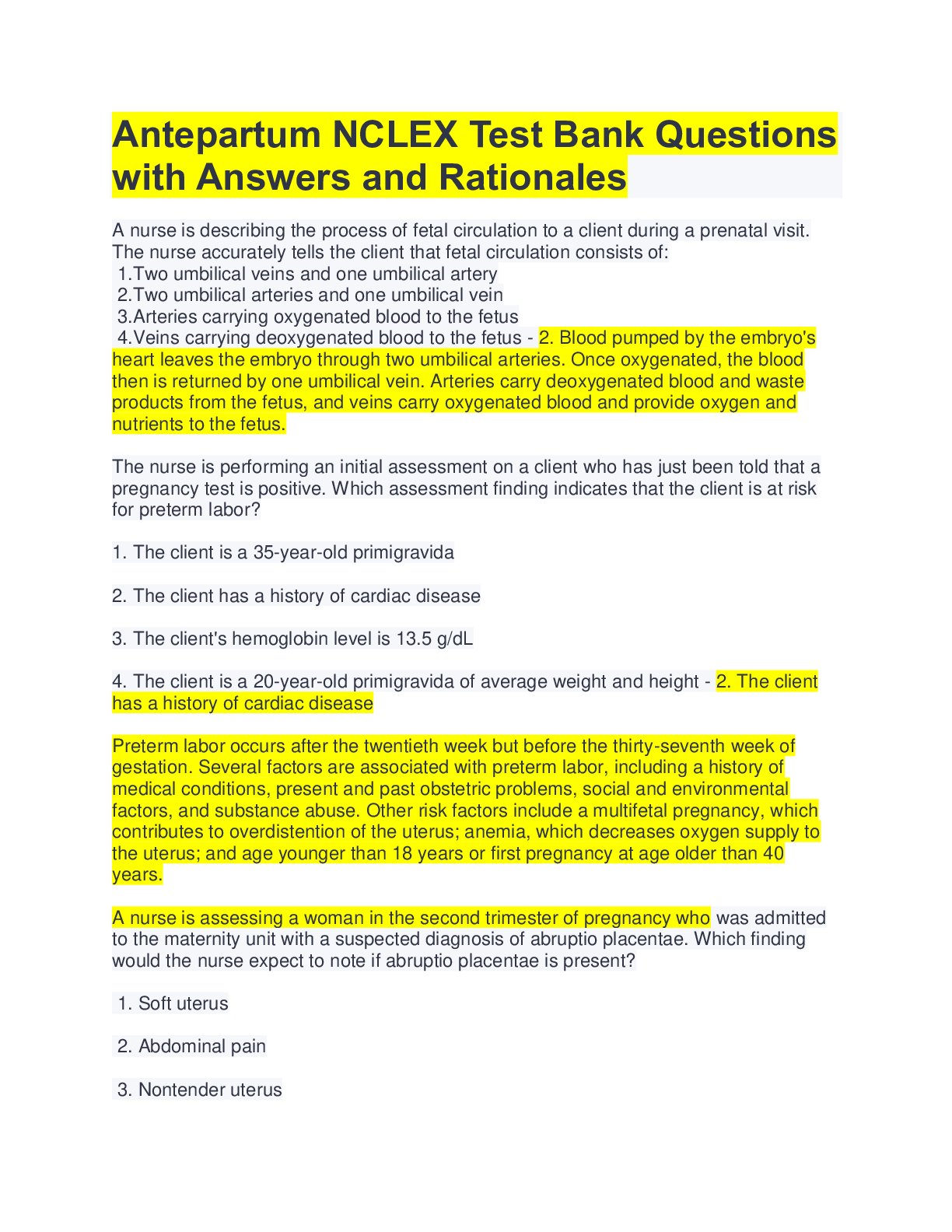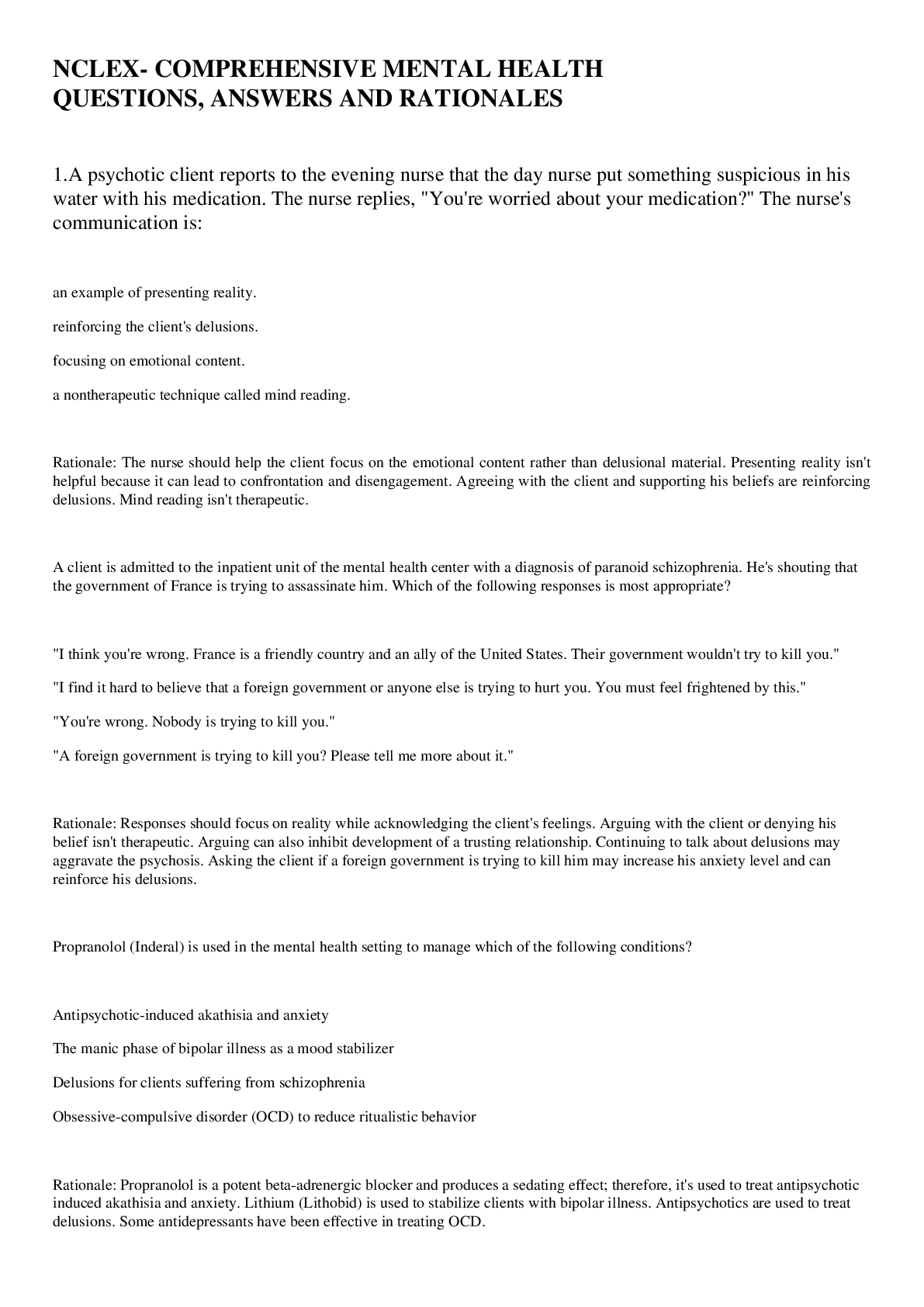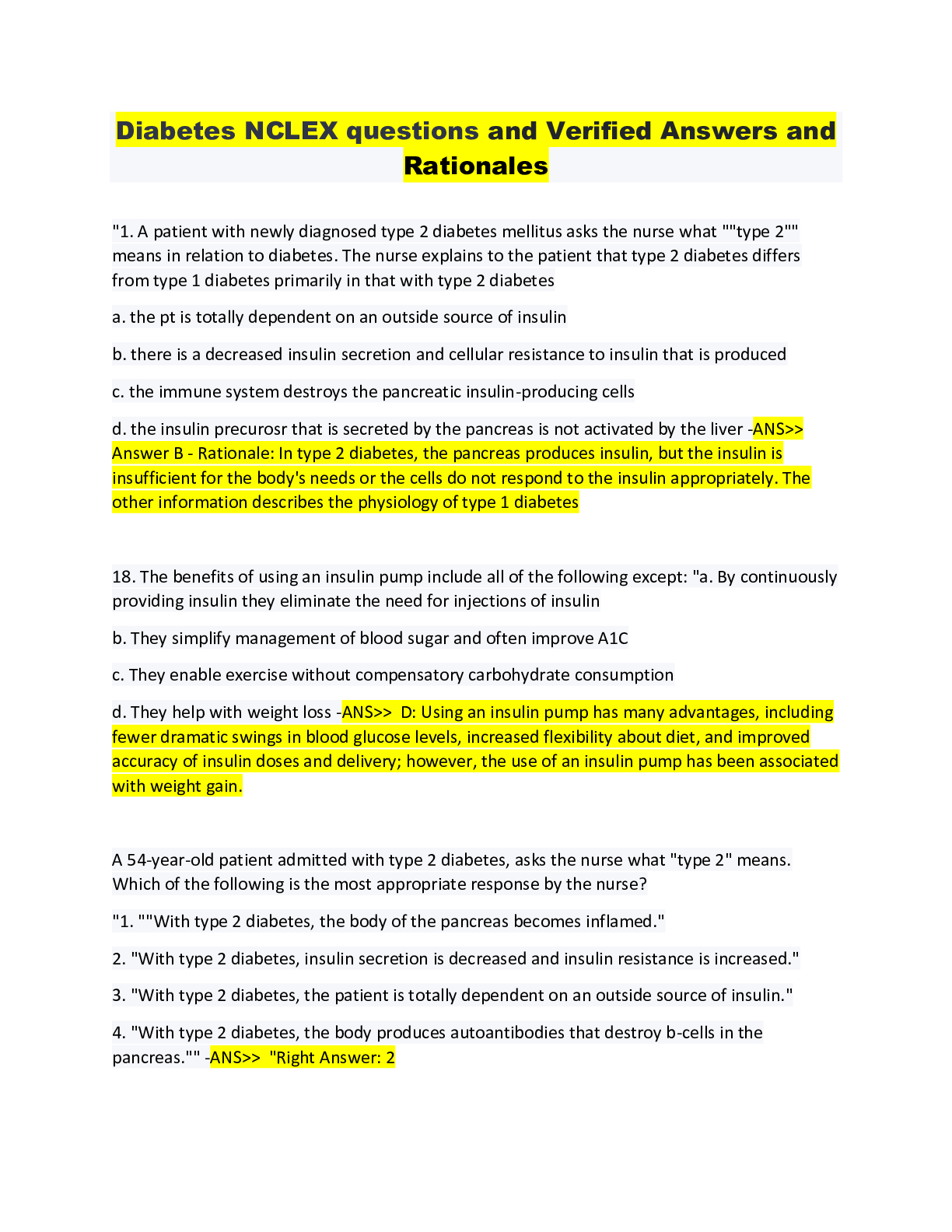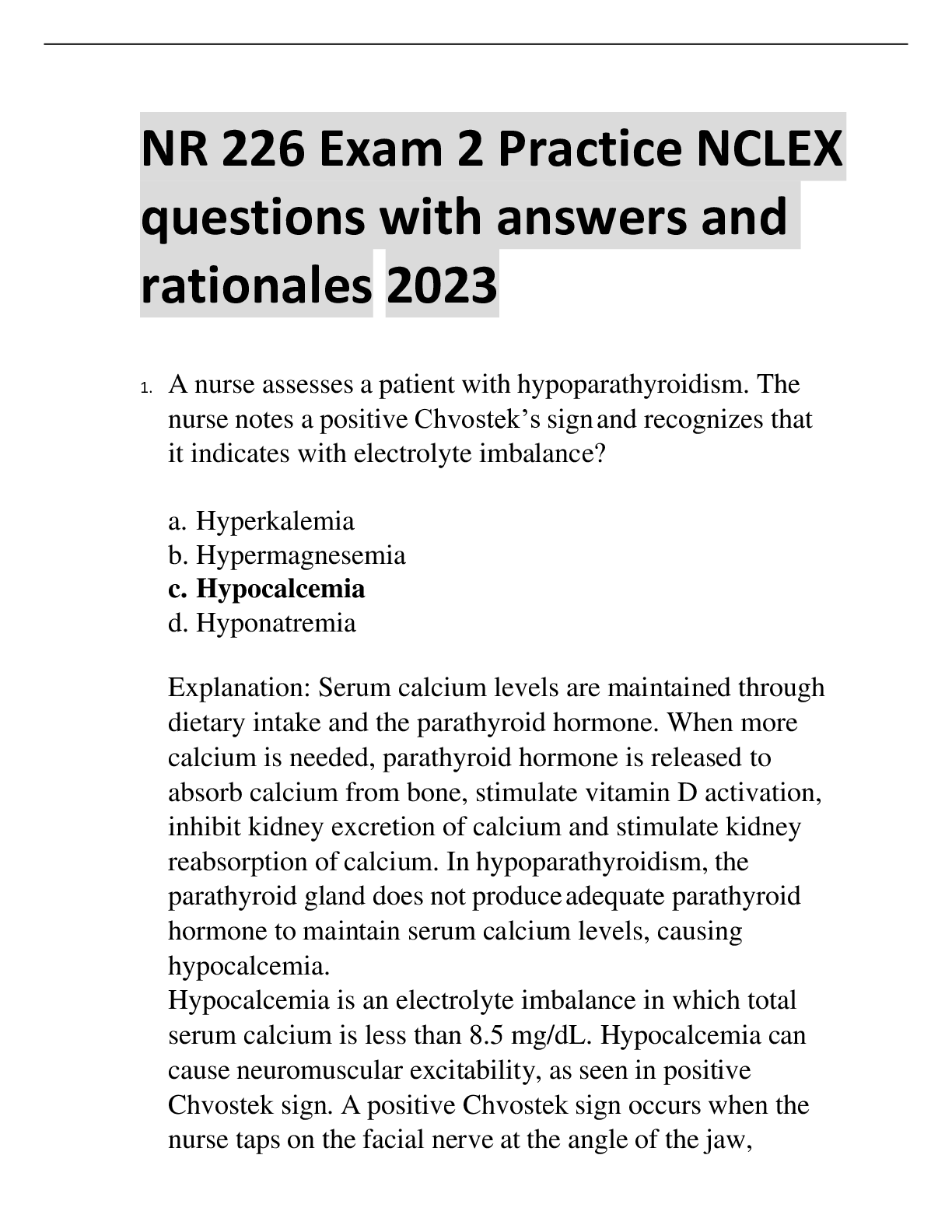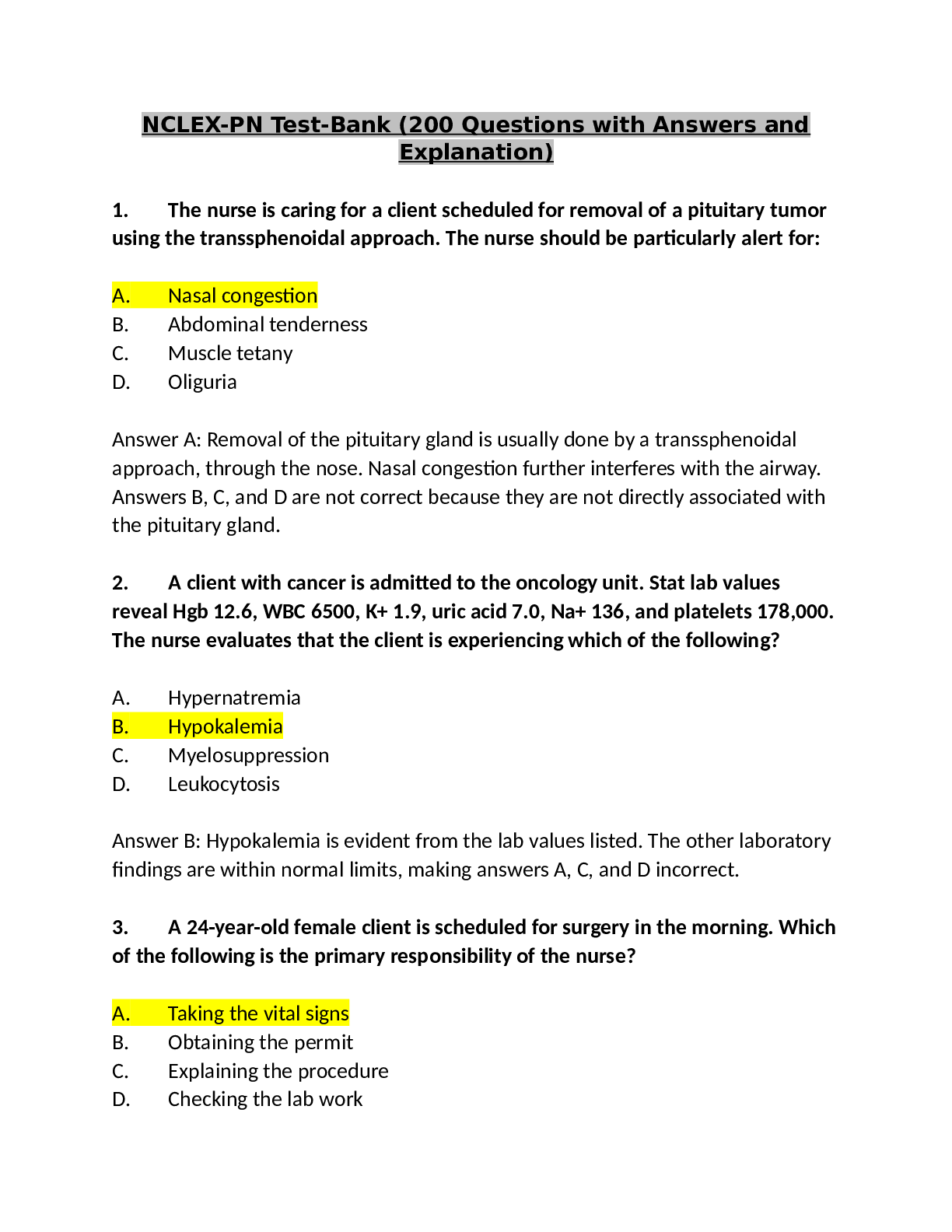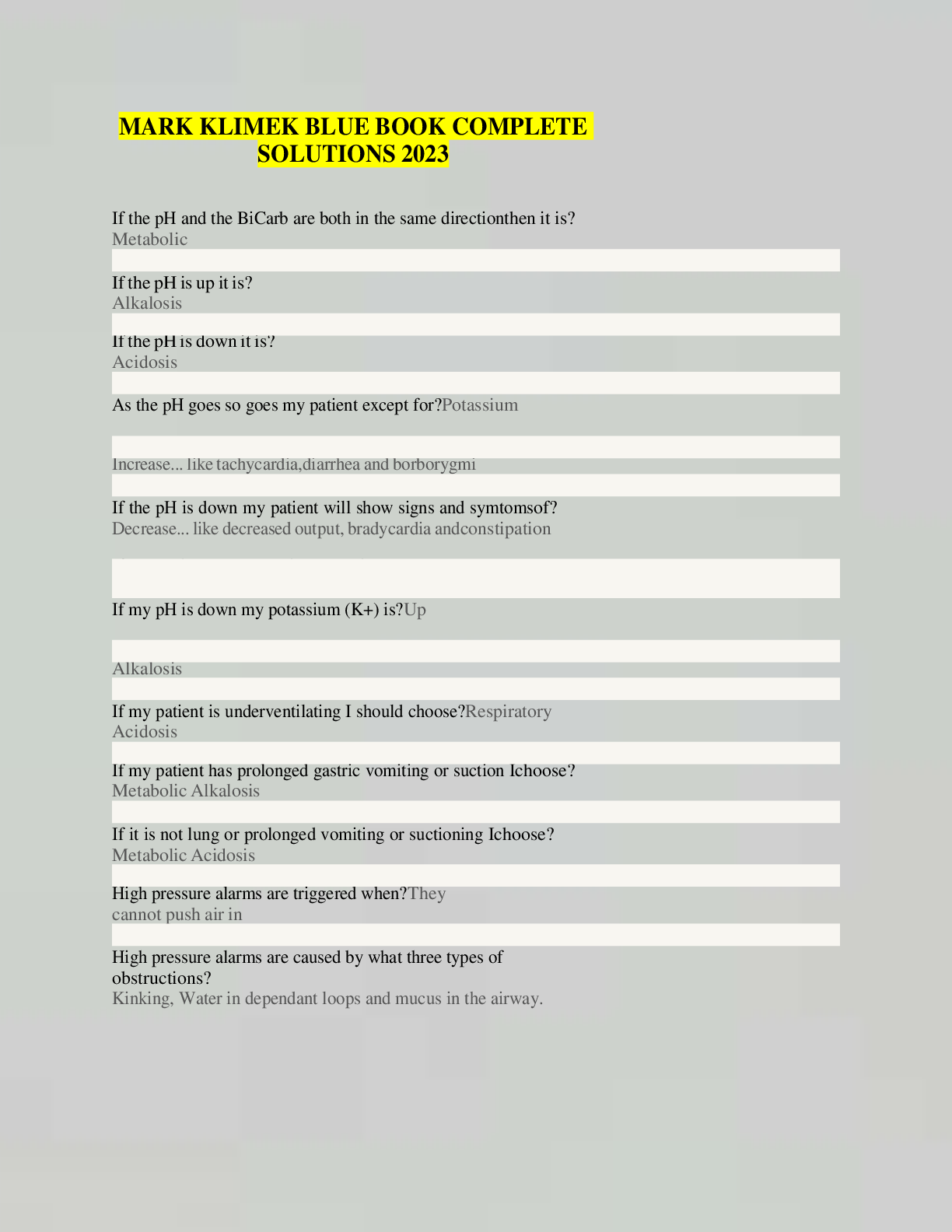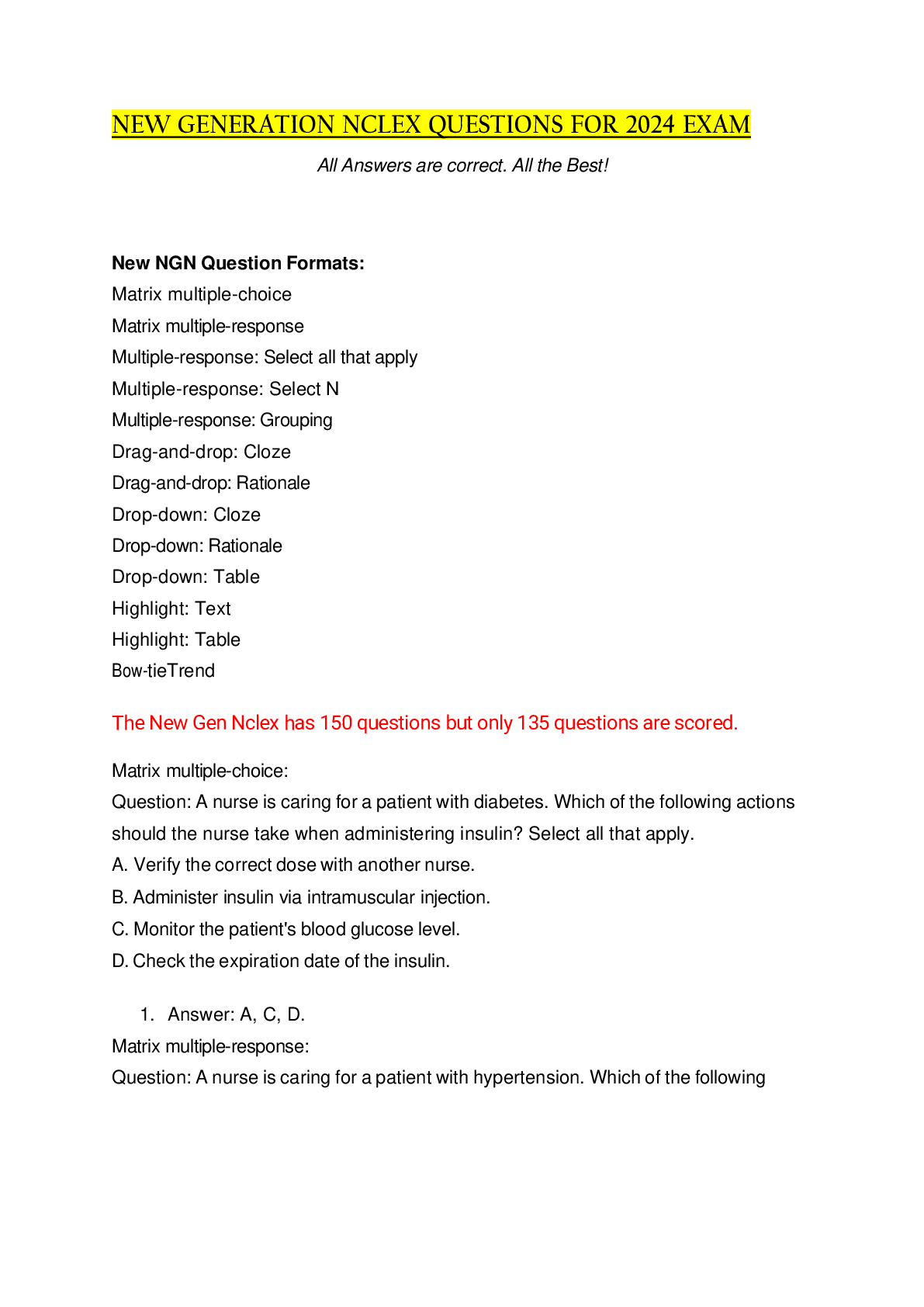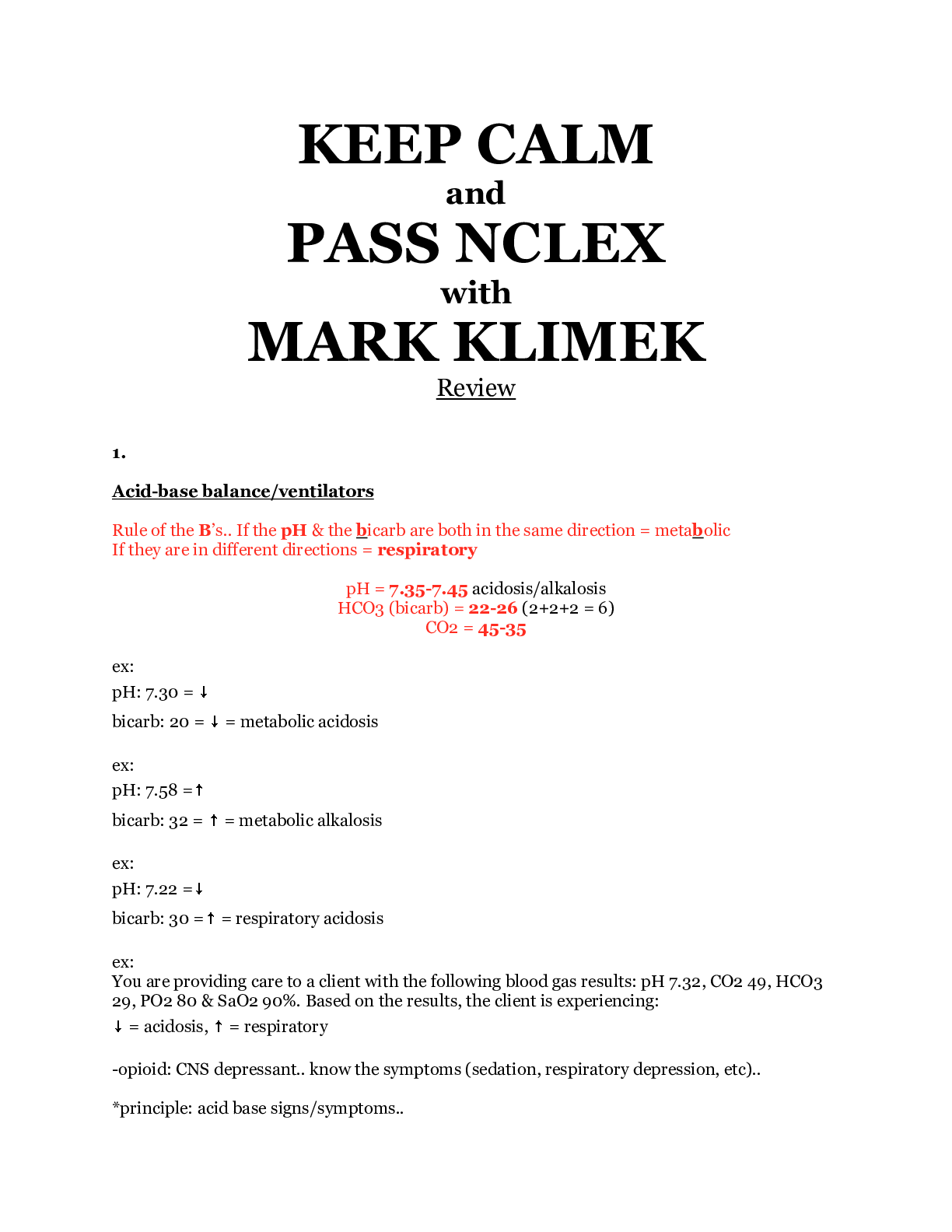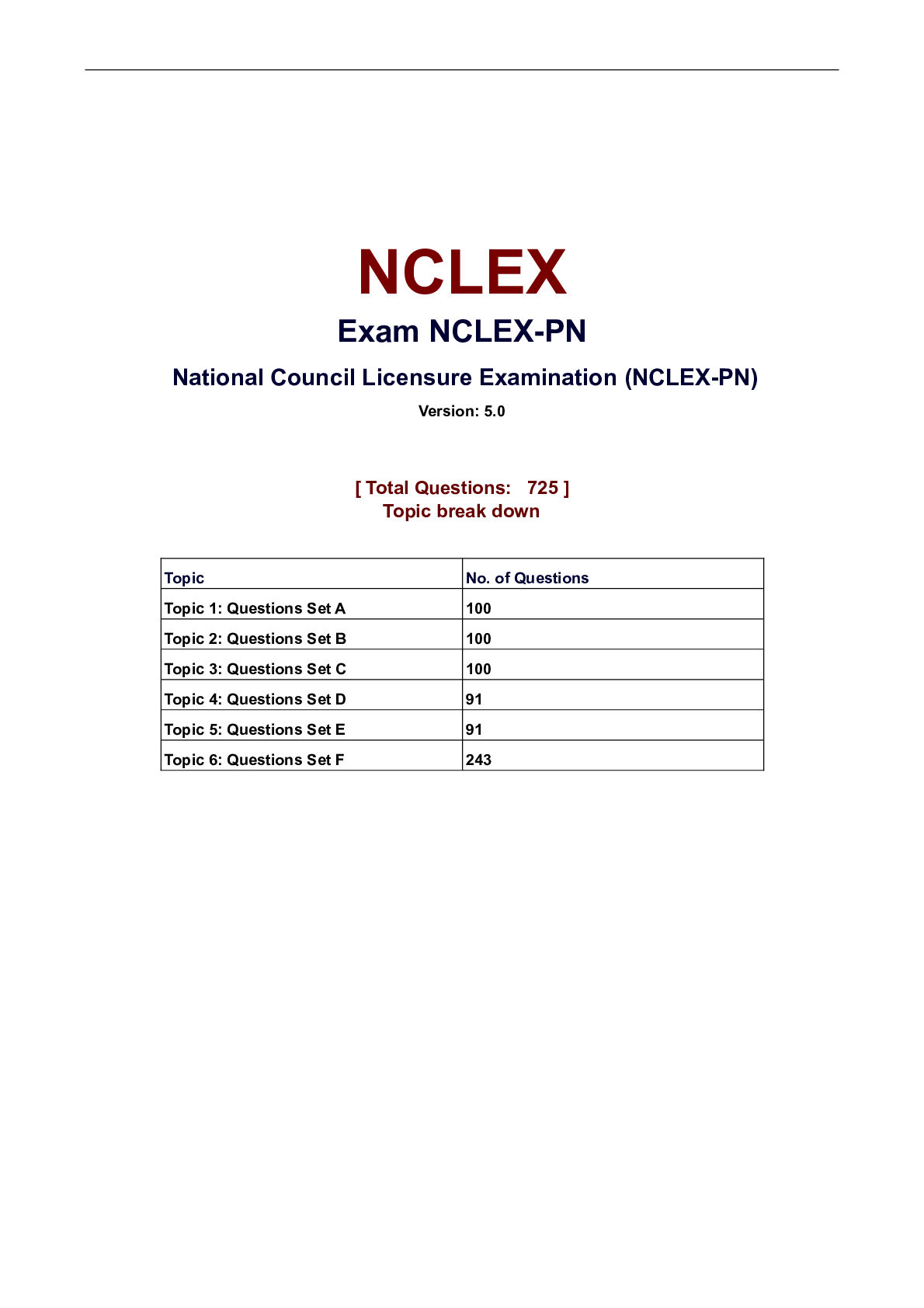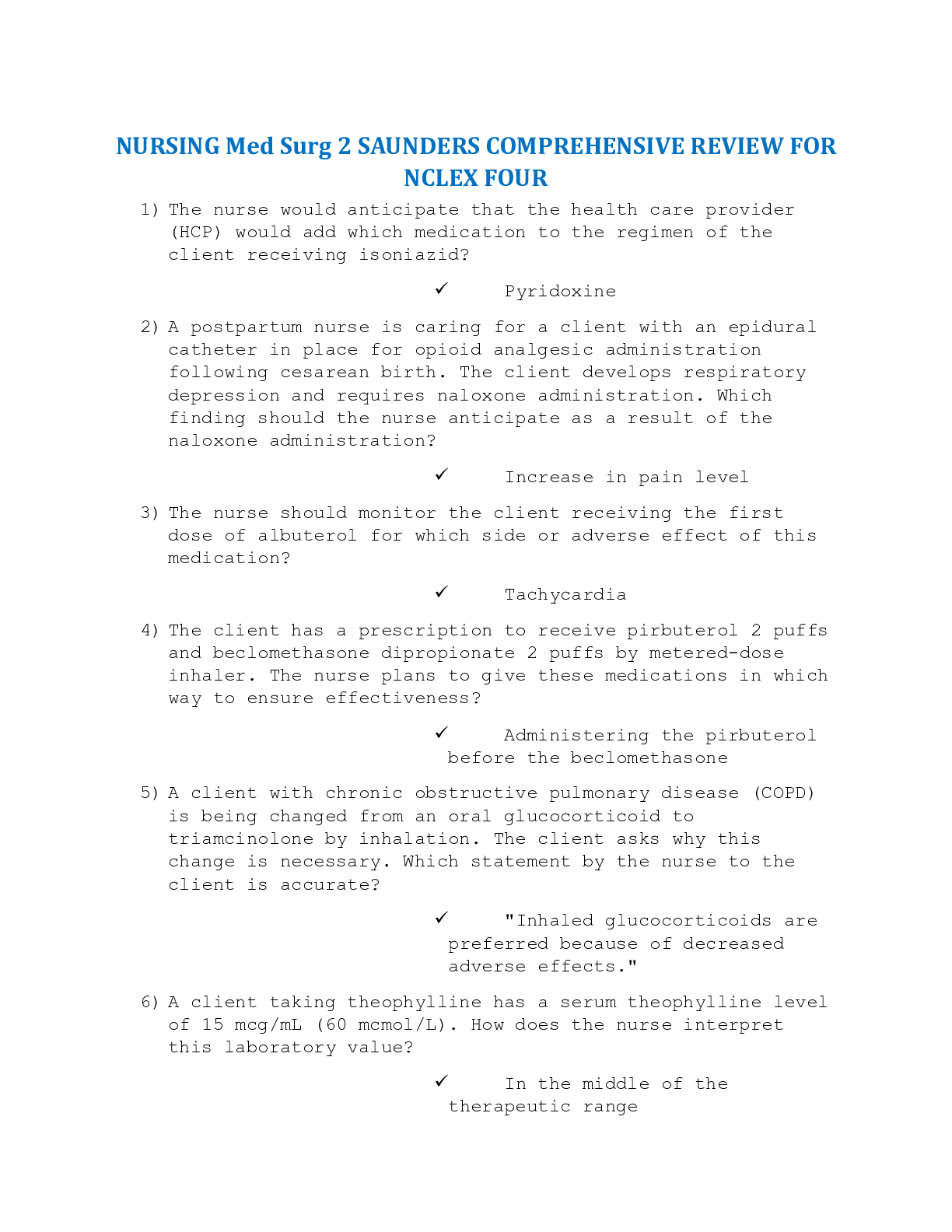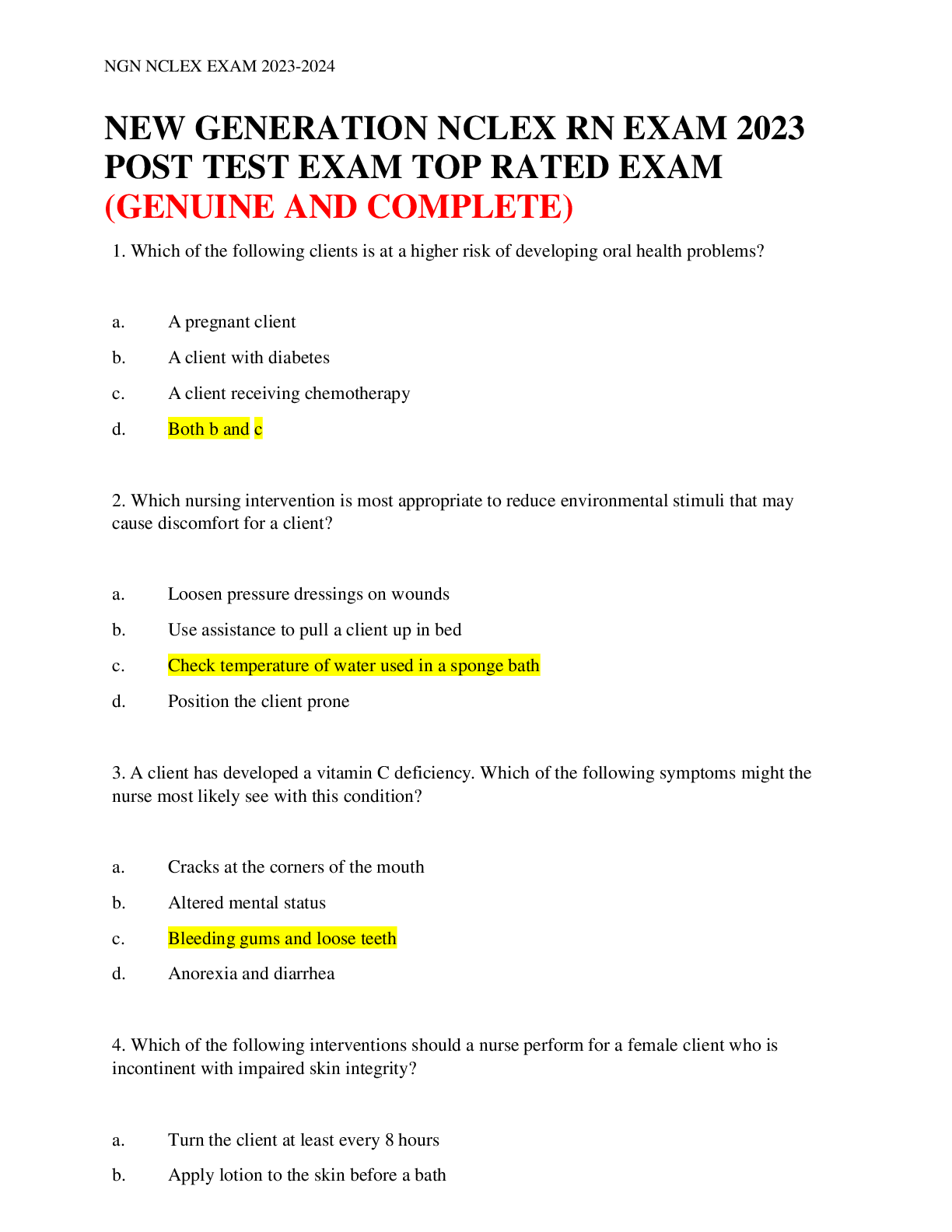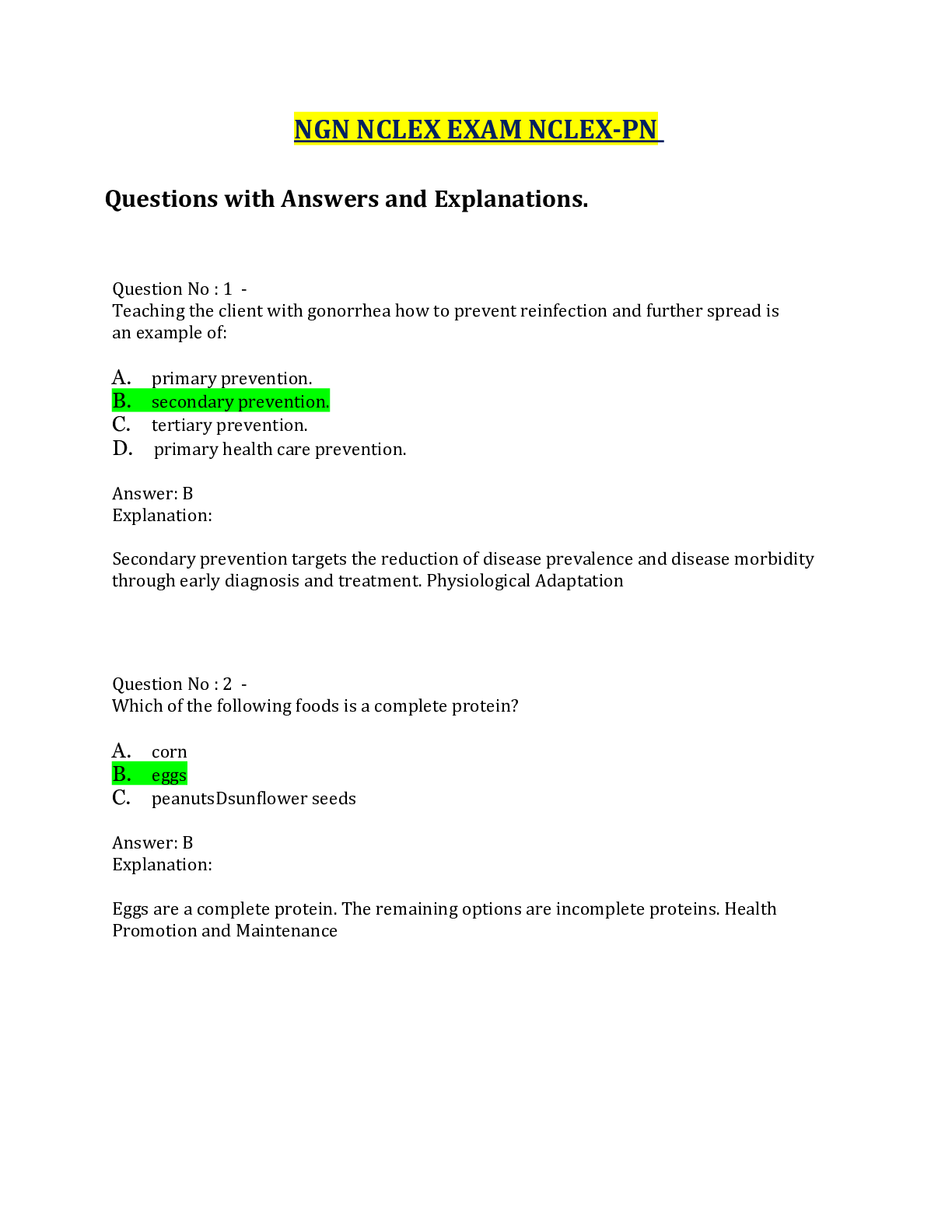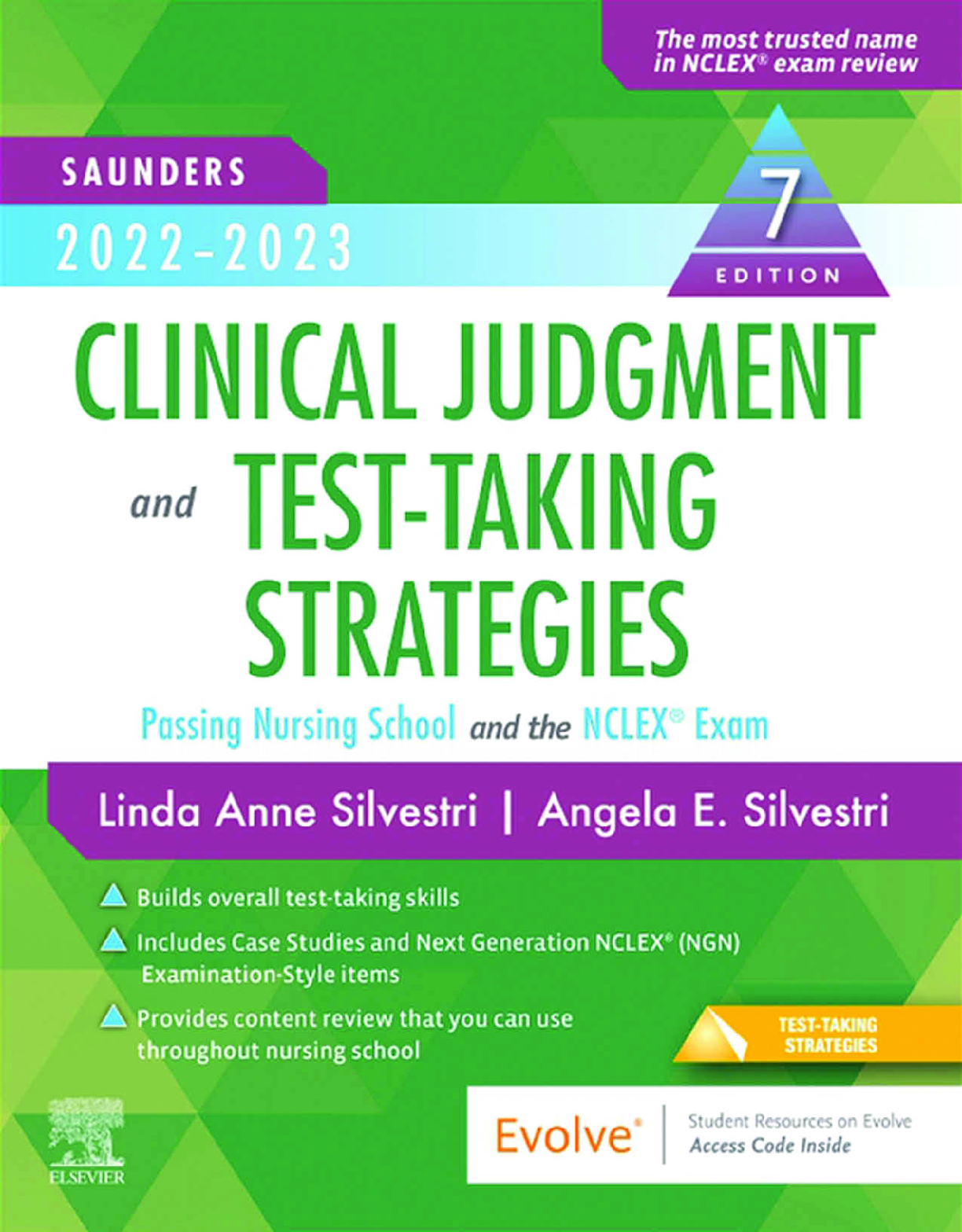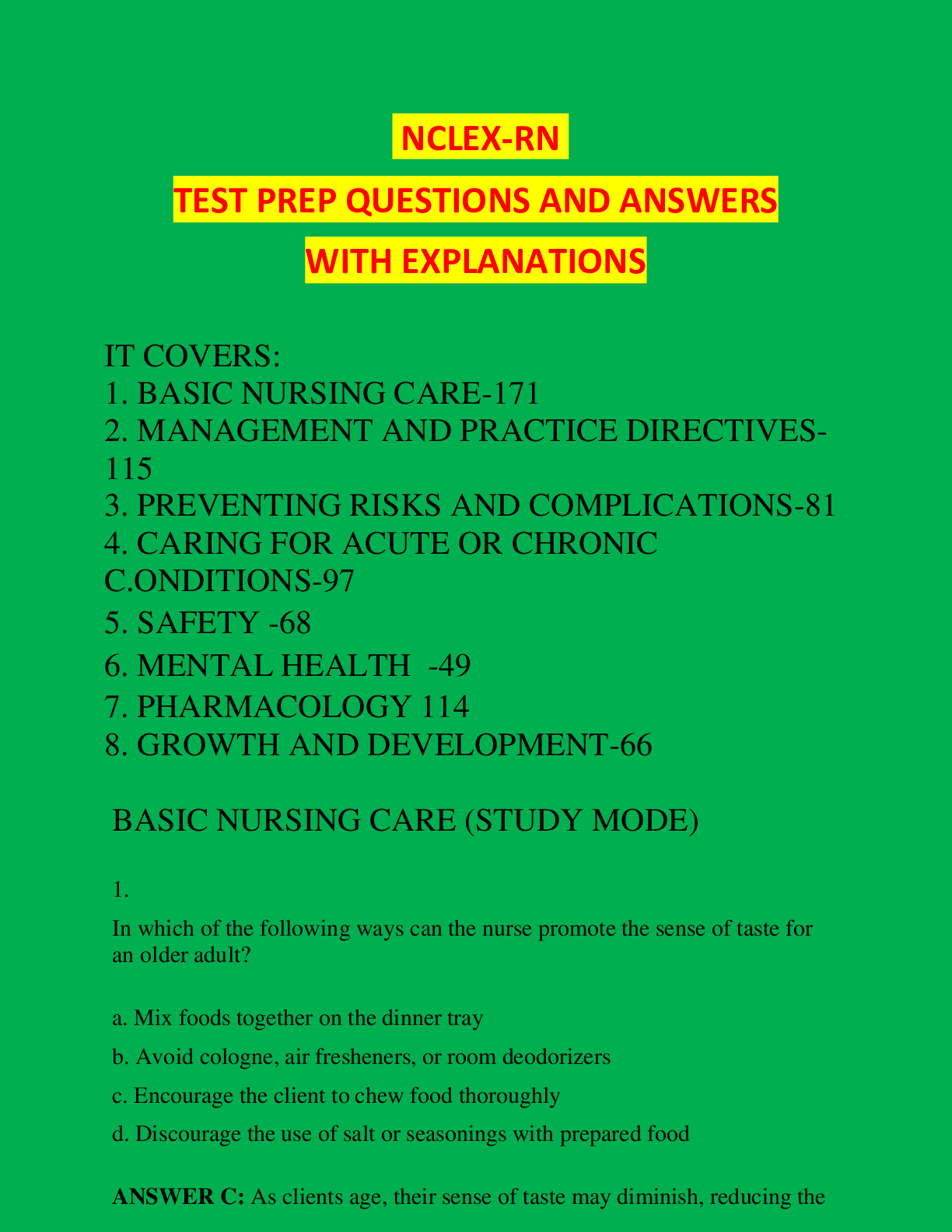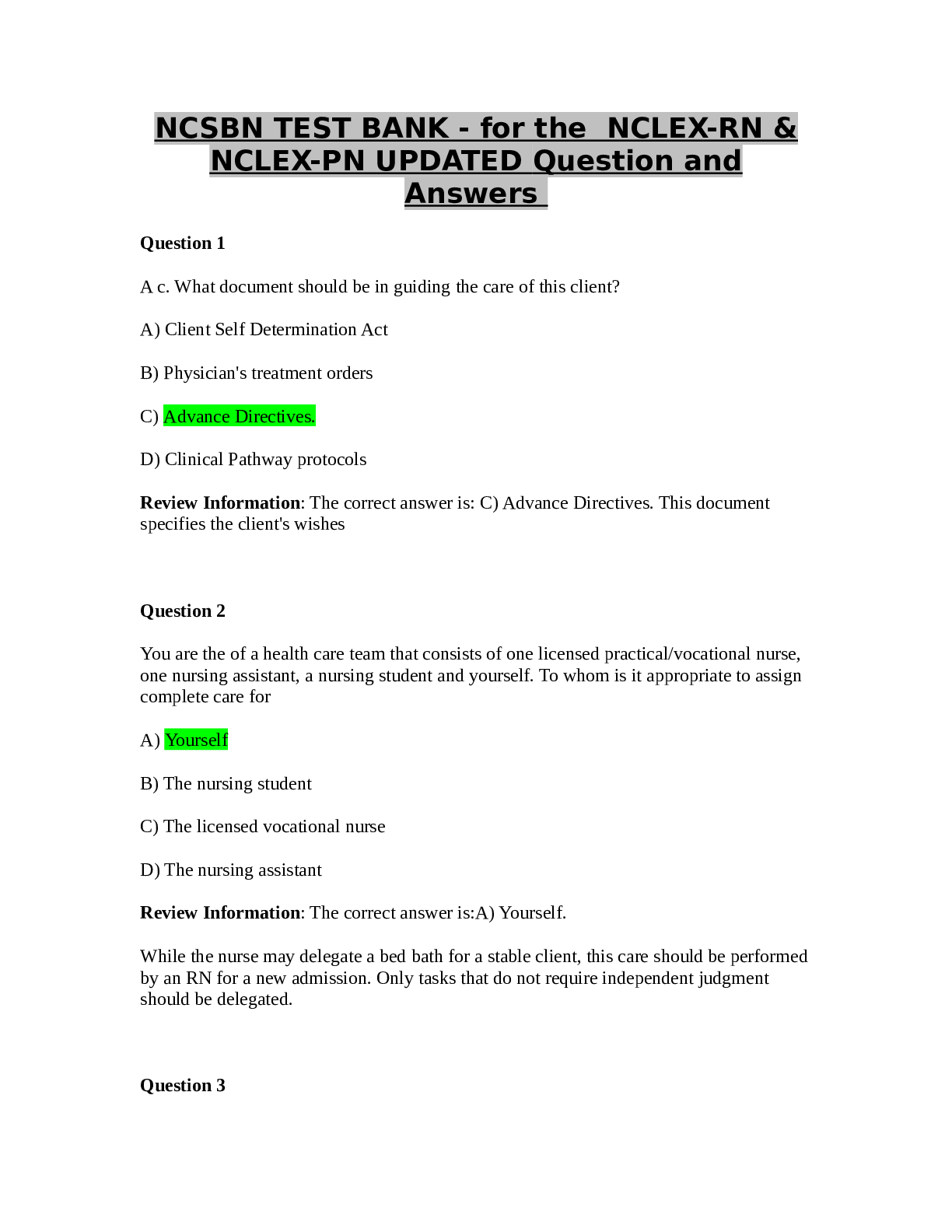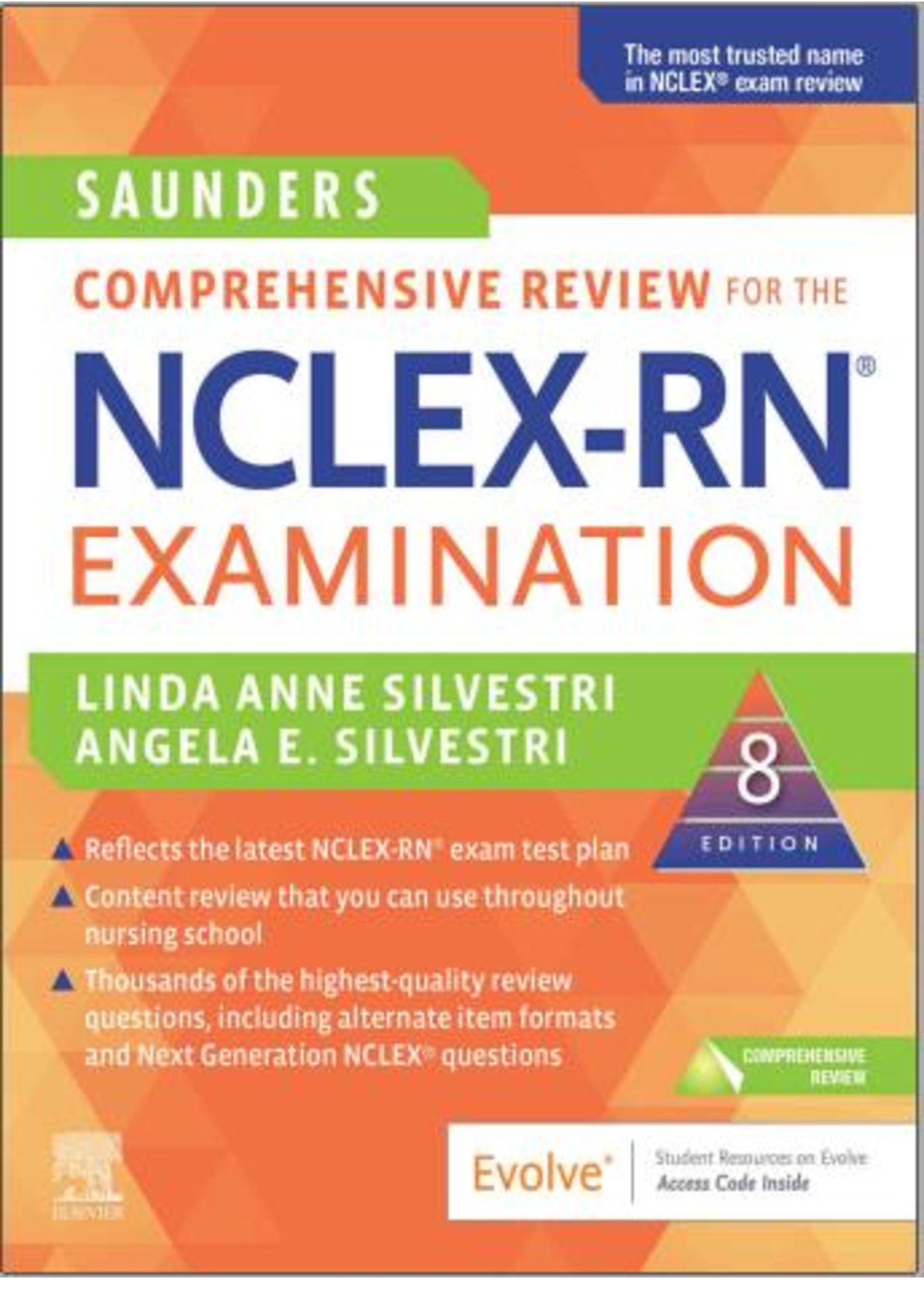PRN NCLEX Cards - Questions, Answers and Rationales
Document Content and Description Below
PRN NCLEX Cards - Questions, Answers and Rationales An elderly client with Alzheimer's disease becomes agitated and combative when a nurse approaches to help with morning care. The most appropriate n... ursing intervention in this situation would be to: a. Tell the client family that it is time to get dressed. b. Obtain assistance to restrain the client for safety. c. Remain calm and talk quietly to the client. d. Call the doctor and request an order for sedation. Maintaining a calm approach when intervening with an agitated client is extremely important. Telling the client firmly that it is time to get dressed may increase his agitation, especially if the nurse touches him. Restraints are a last resort to ensure client safety and are inappropriate in this situation. Sedation should be avoided, if possible, because it will interfere with CNS functioning and may contribute to the client's confusion. In clients with a cognitive impairment disorder, the phenomenon of increased confusion in the early evening hours is called: a. Aphasia b. Agnosia c. Sundowning d. Confabulation Sundowning is a common phenomenon that occurs after daylight hours in a client with a cognitive impairment disorder. The other options are incorrect responses, although all may be seen in this client. Which of the following outcome criteria is appropriate for the client with dementia? a. The client will return to an adequate level of self-functioning. b. The client will learn new coping mechanisms to handle anxiety. c. The client will seek out resources in the community for support. d. The client will follow an establishing schedule for activities of daily living. Following established activity schedules is a realistic expectation for clients with dementia. All of the remaining outcome statements require a higher level of cognitive ability than can be realistically expected of clients with this disorder. The school guidance counselor refers a family with an 8-year-old child to the mental health clinic because of the child's frequent fighting in school and truancy. Which of the following data would be a priority to the nurse doing the initial family assessment? a. The child's performance in school b. Family education and work history c. The family's perception of the current problem d. The teacher's attempts to solve the problem The family's perception of the problem is essential because change in any one part of a family system affects all other parts and the system as a whole. Each member of the family has been affected by the current problems related to the school system and the nurse would be interested in the data. The child's performance in school and the teacher's attempts to solve the problem are relevant and may be assessed; however, priority would be given to the family's perception of the problem. The family education and work history may be relevant, but are not a priority. The parents of a young man with schizophrenia express feelings of responsibility and guilt for their son's problems. How can the nurse best educate the family? a. Acknowledge the parent's responsibility. b. Explain the biological nature of schizophrenia. c. Refer the family to a support group d. Teach the parents various ways they must change. The parents are feeling responsible and this inappropriate self-blame can be limited by supplying them with the facts about the biologic basis of schizophrenia. Acknowledging the patient's responsibility is neither accurate nor helpful to the parents and would only reinforce their feelings of guilt. Support groups are useful; however, the nurse needs to handle the parents' self-blame directly instead of making a referral for this problem. Teaching the parents various ways to change would reinforce the parental assumption of blame; although parents can learn about schizophrenia and what is helpful and not helpful, the approach suggested in this option implies the parents' behavior is at fault. The nurse collecting family assessment data asks. "Who is in your family and where do they live?" which of the following is the nurse attempting o identify? a. Boundaries b. Ethnicity c. Relationships d. Triangles Family boundaries are parameters that define who is inside and outside the system. The best method of obtaining this information is asking the family directly who they consider to be members. The question asked by the nurse would not elicit information about the family's ethnicity or culture, nor does it address the nature of the family relationship. According to the family systems theory, which of the following best describes the process of differentiation? [Show More]
Last updated: 6 months ago
Preview 1 out of 30 pages
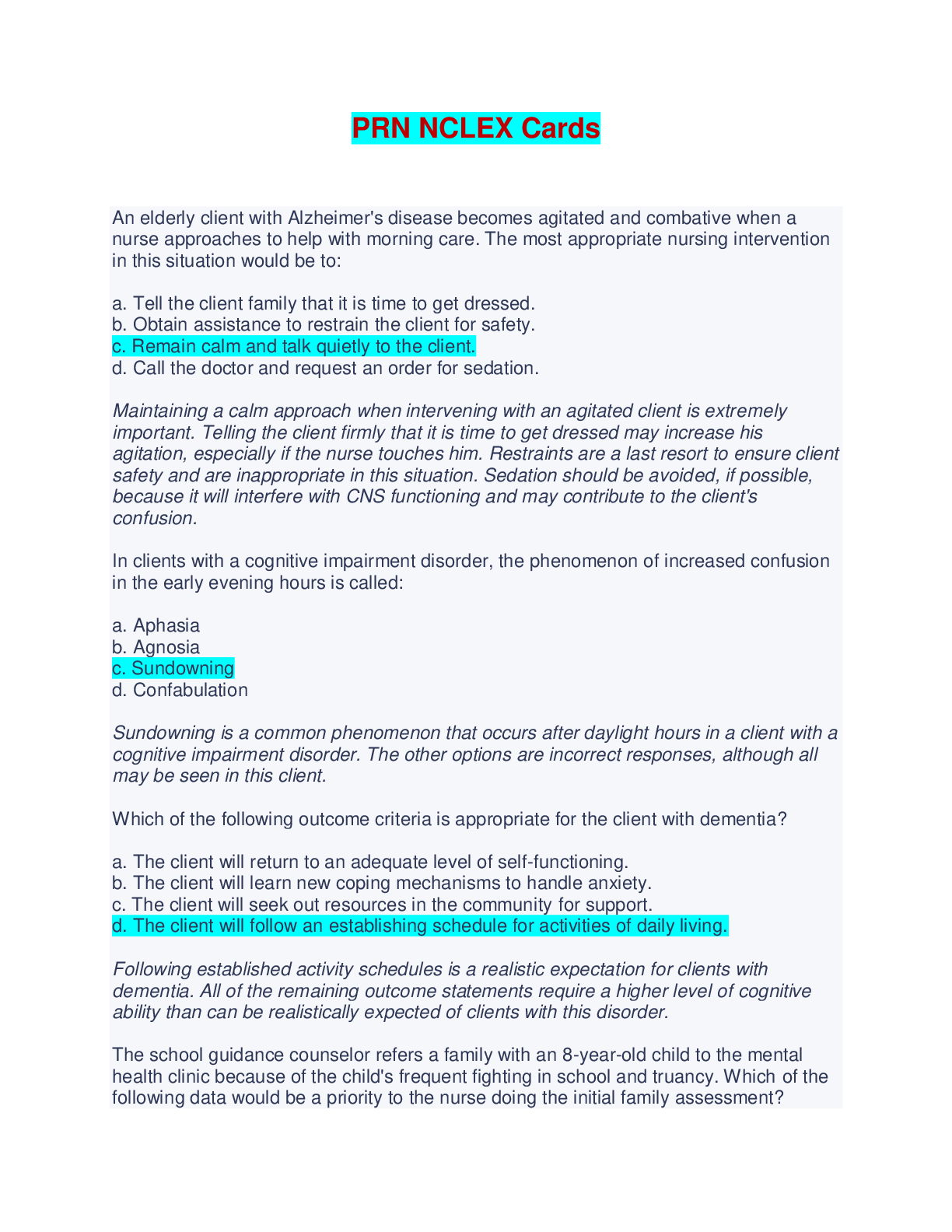
Reviews( 0 )
Document information
Connected school, study & course
About the document
Uploaded On
Oct 24, 2023
Number of pages
30
Written in
Additional information
This document has been written for:
Uploaded
Oct 24, 2023
Downloads
0
Views
17

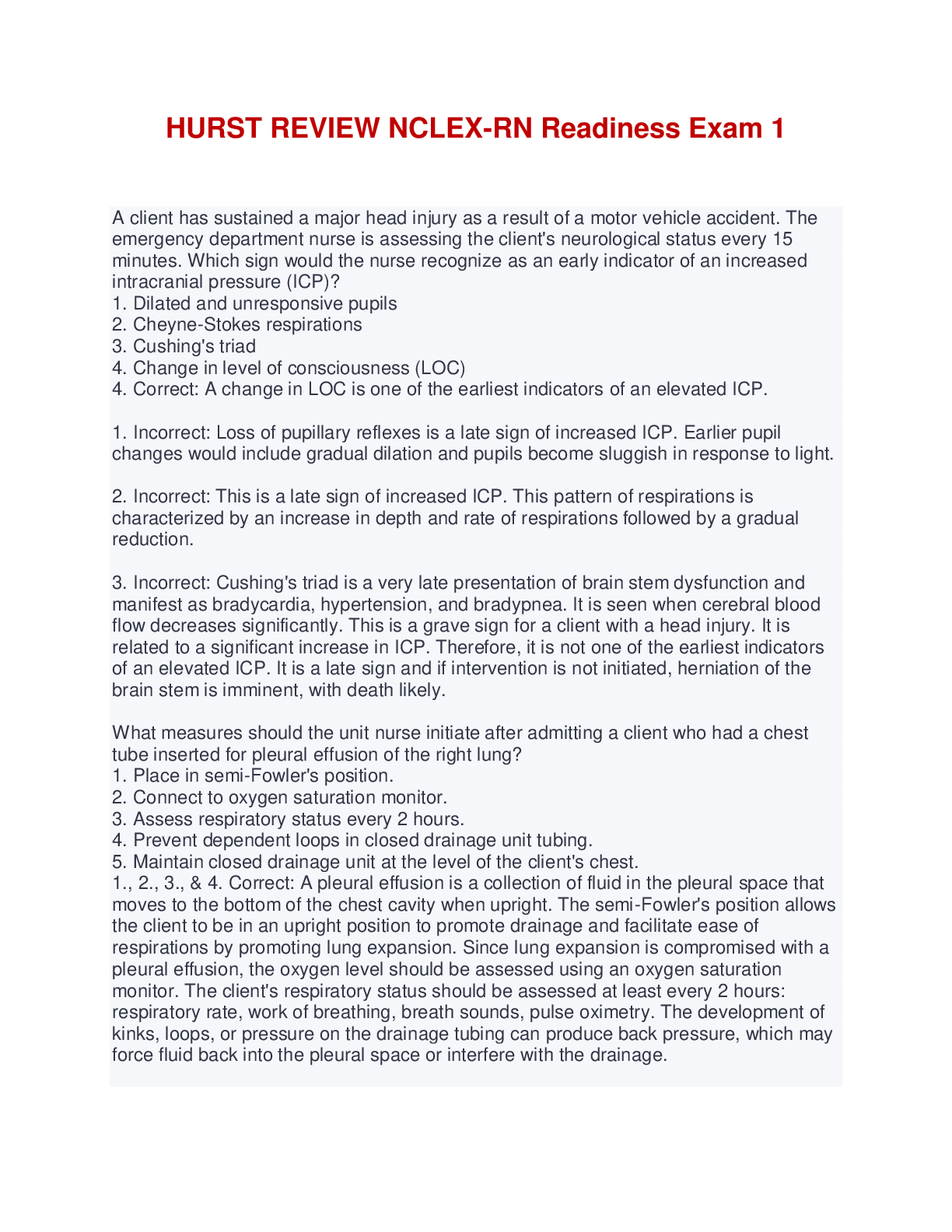
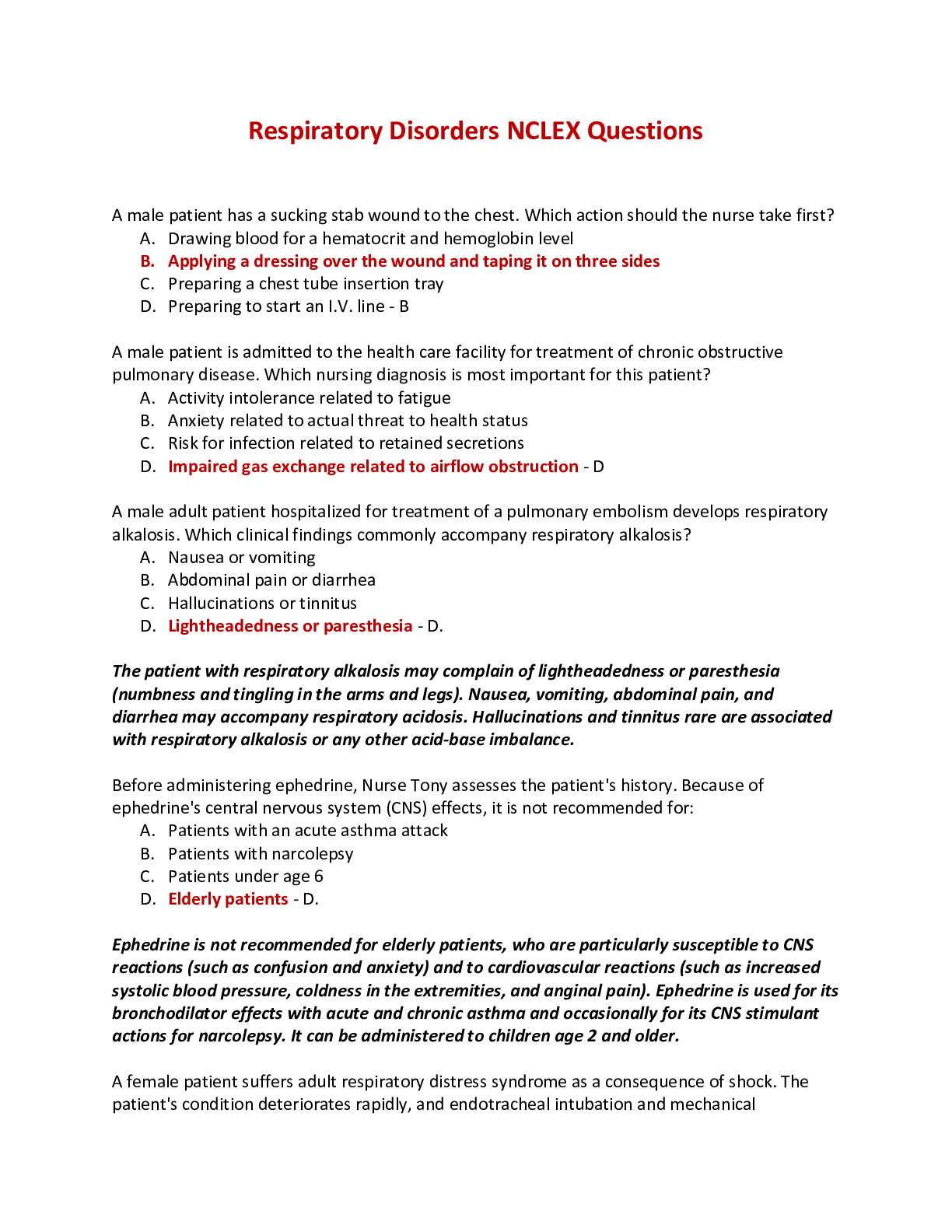
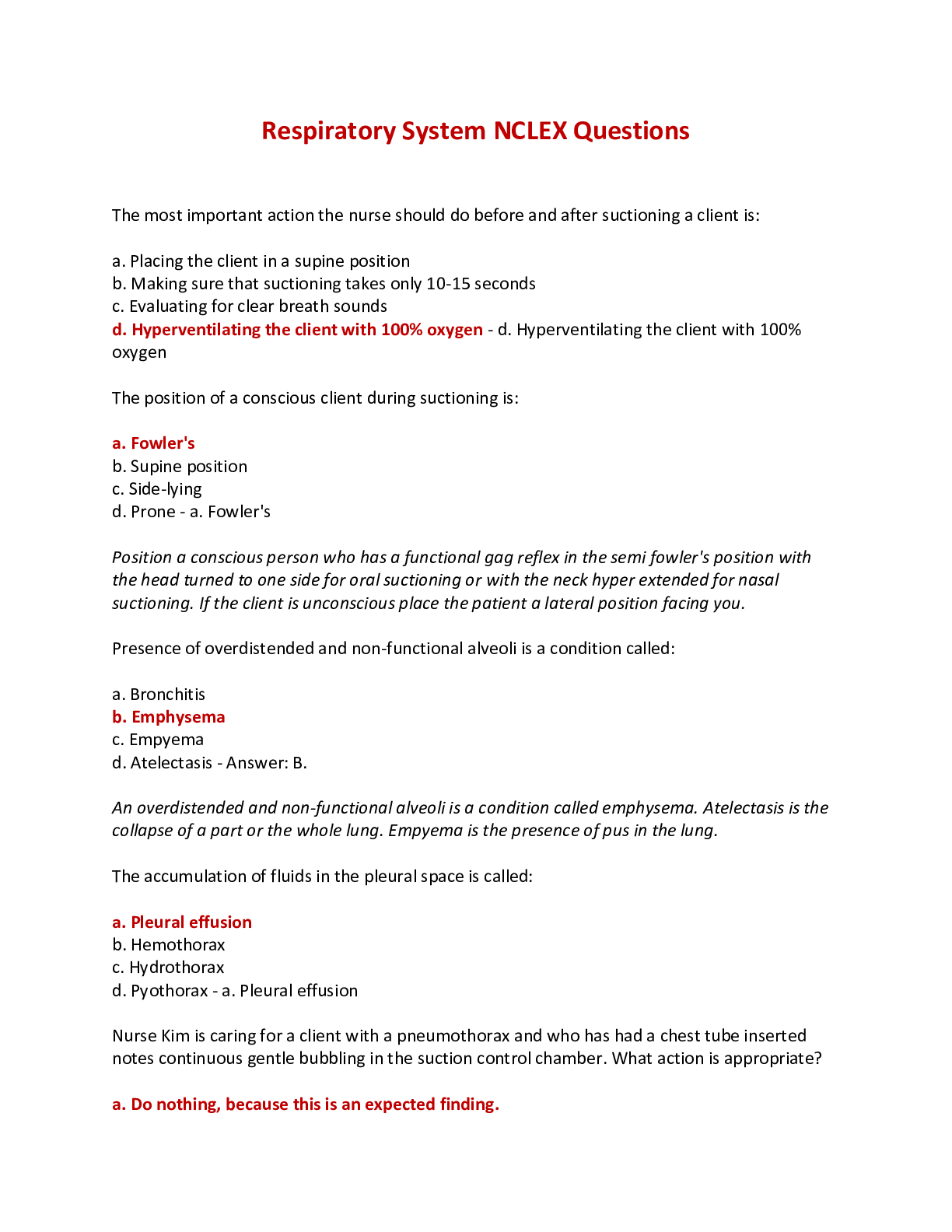
 NCLEX Study Guide.png)
